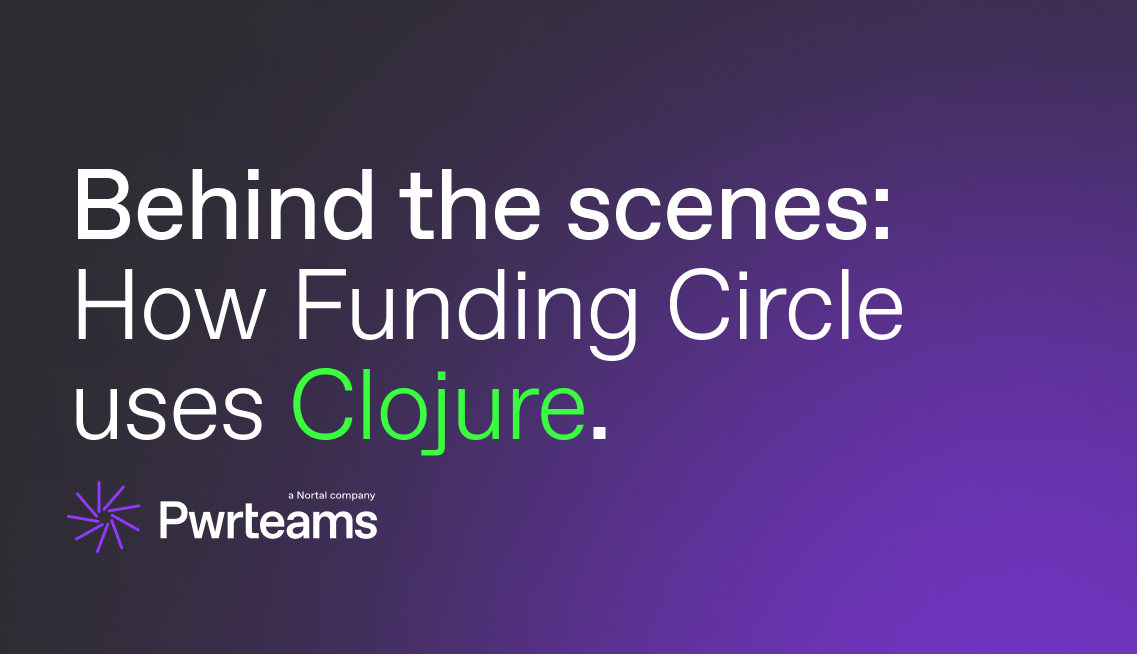Clojure seems simpler, but it has its quirks


Meet our colleague Yana Mishkova from team Funding Circle. She has joined the team back in September with no experience with Clojure. A few months later she is part of an important project developed with the programming language, and she is really enjoying it. Recently we talked with her about her journey with Clojure and the Funding Circle team. Read what she shared.
Tell us more about yourself. What’s your educational and professional background?
I have a bachelor’s degree in Computer Science from the Sofia University where I worked with a large variety of programming languages. In a professional setting, I have worked with Powershell and C# before joining Funding Circle.
You joined the Funding Circle team at Pwrteams in September without any experience in Ruby and Clojure but had some time to learn those programming languages in the beginning. Tell us more about your first few months in the team?
I started learning Ruby a month before joining Funding Circle. After I joined, I was provided with access to learning materials to get started with Clojure. I was assigned a buddy to support me during my onboarding and help me look for issues. Within the first months, I started working on simpler issues, suitable to a complete beginner and complexity increased gradually.
What about this new project you are currently working on? What it is about and what kind of problems it is solving? What’s your part in it?
The new project has the goal to automate a tedious manual project for one of the other teams in the company. My role in it, as a developer, involves research, communication outside of the team, organizing technical discussions regarding development details and, understandably, coding.
What about your experience with Clojure so far? Do you like this programming language? What are its advantages?
So far, I am really enjoying working with Clojure. It seems far simpler, but it has a few quirks to get used to. One of them is the fact that it is a functional language. So, the entire way of thinking when writing it has been an adjustment compared to OOP languages such as C# and C++. Syntax-wise Clojure is a lot like Scheme and Haskell. That makes it very fluid in terms of writing. C# is a somewhat strict language, while Clojure allows more freedom, so to speak.
And what about the people in Funding Circle? Do you enjoy working with them? Does working from home make any difference in the communication with your colleagues?
The people I have communicated with in Funding Circle have been, without exception, lovely and welcoming. Working with them has been a pleasure, and I look forward to continuing. Working from home has made some difference compared to my first few weeks when I was often visiting the office, but I work with relatively few people from Sofia, so it hasn’t been that much of a stress.
Do you want to be part of such an amazing team, learn new technologies and work on interesting projects? Make sure to check out the vacancies and apply.
 December 29, 2026
December 29, 2026
Women in tech: Simona Nasteva-Kashkanova, Software Engineer
Read the post September 29, 2025
September 29, 2025
Build your team or extend with ours? Here’s what helps fintech CTOs decide
Read the post September 10, 2025
September 10, 2025
Fixed-price projects vs dedicated teams: A fintech CTO comparison
Read the postWrite your own
success story
with Pwrteams!
Share your details in the form, tell us about your needs, and we'll get back with the next steps.
- Build a stable team with a 95.7% retention rate.
- Boost project agility and scalability with quality intact.
- Forget lock-ins, exit fees, or volume commitments.